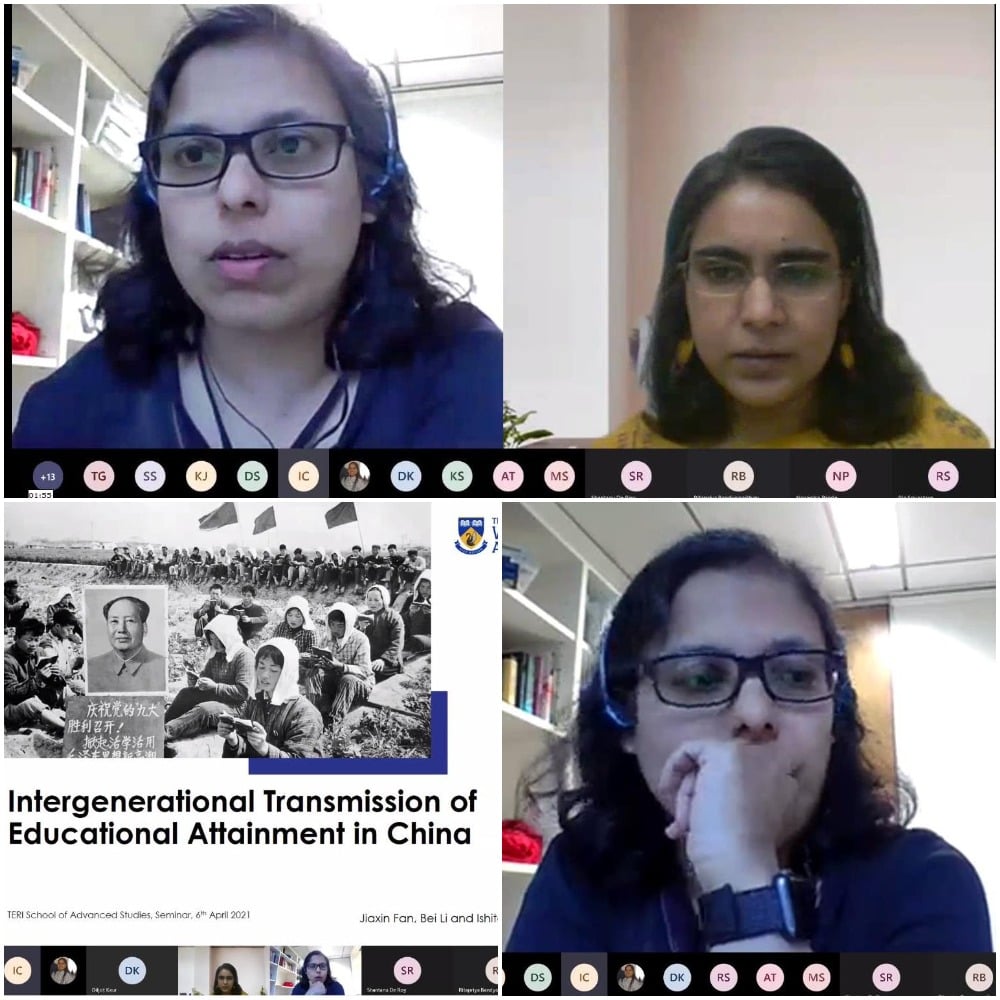
ANNOUNCEMENTS

Speaker: Dr Ishita Chatterjee, Senior Lecturer, UWA Business School (Economics), University of Western
This paper aims to examine the intergenerational effect of parental education on children’s educational attainments in China and further explores the patterns of intergenerational education transmission across different dimensions using the 2013 Chinese Health and Retirement Longitudinal Study. We find that, as expected, parental education is positively correlated with the educational attainment of the subsequent generation; however, rural parents generally have greater marginal associations with children’s education as compared to their urban counterparts. Further, though daughter’s educational attainment is more sensitive to their mother’s rather than father’s education, the intergenerational transmission coefficient is higher between child’s schooling and father’s schooling, compared to corresponding mothers. This same pattern emerged for both urban and rural population. Moreover, a closer comparison between sons and daughters also reveal a noticeable gender discrepancy, as girls in general are more sensitive and elastic to family resources. In order to determine the causal impact of parental education, we next use an instrumental variable approach. The Cultural Revolution that occurred between 1966 and 1976 was a large-scale political upheaval that significantly disrupted education for a generation of youth. The school disruption that happened during the Cultural Revolution can thus be treated as an exogenous variation uncorrelated to parental abilities. The restricted sample contains children whose parents either were direct victims of the Cultural Revolution in terms of education disruption or had no direct educational impact yet experienced this political episode. In general, we observe a positively significant educational relationship across all parent-child pairs. Particularly, parents who encountered the Cultural Revolution had adversely impacted the educational attainments of their offspring. Although after controlling for an augmented set of explanatory variables, the significance of parental education effect diminished when estimated with the instrumental variable approach. This potentially implies parental transmission of education is predominantly due to heterogeneity in other alternative environmental factors and little causal educational interpretation can be generated from the yielded results.

Plot No. 10, Institutional Area, Vasant Kunj, New Delhi - 110 070, India.
Tel. +91 11 71800222 (25 lines).
Website : www.terisas.ac.in
Email id : registrar@terisas.ac.in
© Copyright © 2025, TERI SAS, All rights reserved.
Visitors No.: 47590646 Since 2023


